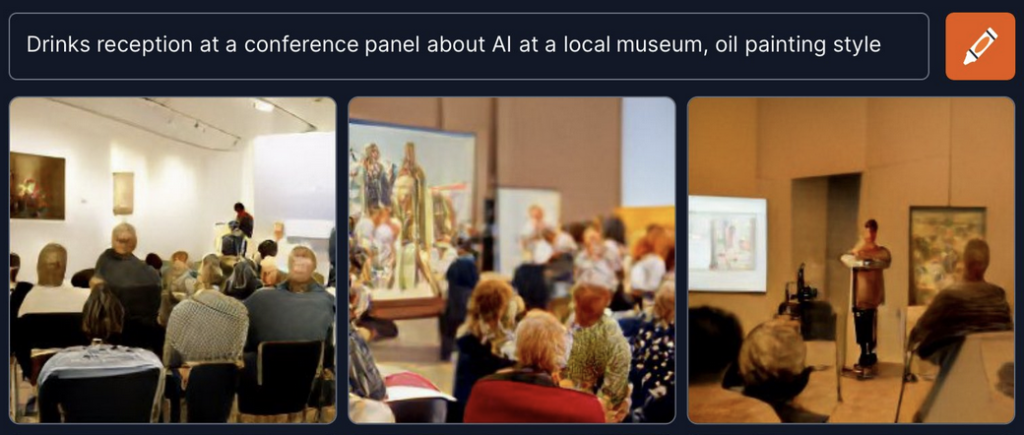The role of AI in creative and cultural industries
Maja Maricevic, Project Co-Investigator and Head of Higher Education and Science at the British Library provides some background about one of our events in our programme of activities around our exhibition at Leeds City Museum…
Our fascination with AI and our fear of AI comes across in many different ways, but it often peaks around the issue of creativity. Creativity is often held as the real frontier of humanness, a space where, we like to believe, the uniqueness of our human brains cannot be equalled by AI.
We now accept that we’ll lose to AI in a game of chess, and can’t compete with its ability to process big data, but we feel uneasy when an AI-generated picture wins an art competition. This happened recently at the annual Colorado State Fair, where artist Jason M. Allen used an AI programme to create his work “Théâtre D’opéra Spatial”. And if we are honest, those dancing Boston Dynamics robots amaze us and give us chills at the same time. As for the Metaverse, the whole concept remains precariously perched on the boundaries of technology, fiction and marketing.
In the allure of fascinating questions about the nature of creativity and the boundaries between AI and humans, we potentially sideline the myriad ways in which AI is being used in creative and cultural sectors. Much of it is not a mystery – it might be that we are simply using AI to help us navigate digital content, or to understand and reach new audiences, or to market and sell cultural goods.
However, some uses of AI have very serious implications and require our full attention – especially when it comes to designing and using AI in ways that integrate a human-centred set of values. How we entertain ourselves with the aid of technology and AI has been on our radars for a while. But what about cultural and linguistic diversity, equality and equity of opportunity, fairness, enrichment of our life experiences, emotional growth and better mental health, stronger connection and understanding of others, the opportunity to learn and acquire new knowledge, delight in beauty? Can we envisage AI being part of these things?
One way to make these issues easier to discuss is to look at the current manifestations of AI in the creative and cultural sphere. As content-rich organisations – from news media to libraries – start to use AI to manipulate and enrich this content, how are they addressing the issues of bias, diversity and transparency? Can these sectors, and their engagement with AI help us engage with it in a more meaningful way, and to participate more in setting directions for this new technology and its manifestations?
We are looking forward discussing these issues, looking at real examples, at our event at Leeds City Museum on 22nd September (5:30-7:45pm). Our panel will be chaired by Zillah Watson, an Emmy-nominated creative leader and strategist.
The panellists include –
- Rebecca O’Higgins – Founder KI-AH-NA
- Laura Ellis, Head of Technology Forecasting, BBC
- Maja Maricevic, Head of Higher Education and Science, British Library – libraries and heritage
Register at https://www.eventbrite.com/e/the-role-of-ai-in-creative-and-cultural-industries-tickets-395003043737 to join us for this important conversation.

